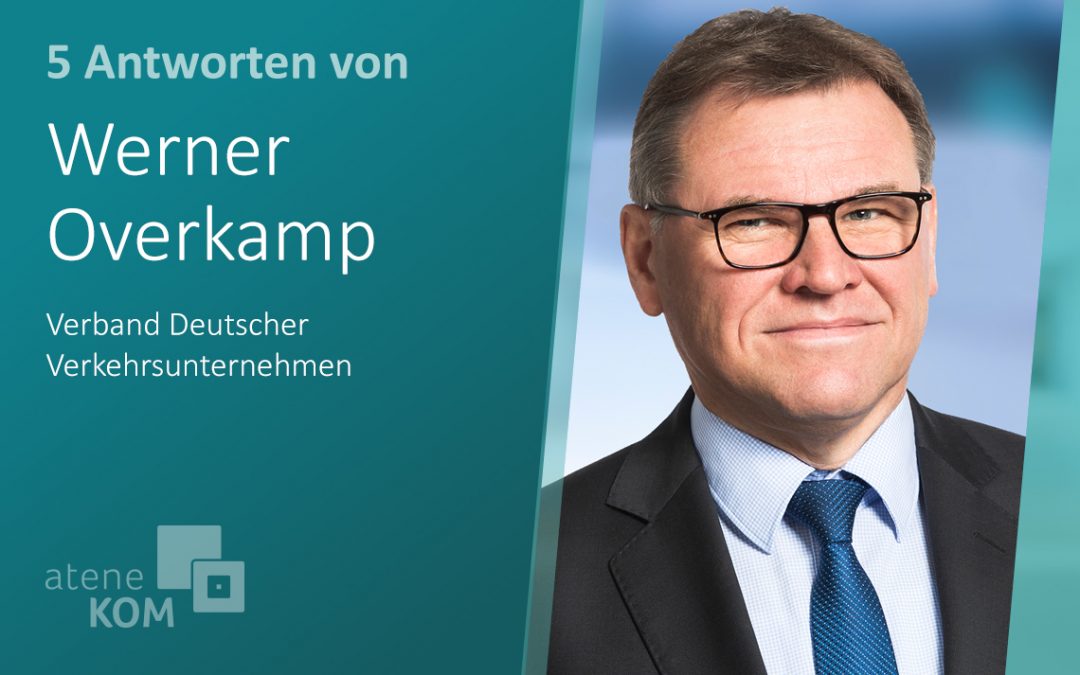Digitalization in local public transport continues to advance and is changing mobility in the long term. It is opening up many new opportunities to speed up processes and develop comprehensive connections, especially in rural regions. Werner Overkamp, Vice President of the Association of German Transport Companies, highlights the opportunities and challenges of the digitalization of mobility in rural areas in the aconium interview “5 answers”.
aconium: In which areas have digital applications already contributed to the further development of mobility in rural areas?
Werner Overkamp: The digital transformation means that passengers’ access to information and tickets is increasingly shifting to the internet and apps on private devices. This means that information and services can be offered digitally and without having to go to the bus stop or customer center. This simplifies the use of local public transport and the booking of supplementary services such as shared cabs.
aconium: What other benefits can digitization bring to rural regions?
Werner Overkamp: The central task is the availability of information about bus and rail services in real time. Especially in rural areas, when a line runs every hour, quickly available information about timetable deviations and reliable connections for transfer passengers are important for customer satisfaction.
A future addition to public transport is so-called on-demand services, which are used on demand by customers and thus allow a flexible temporal and spatial expansion of the public transport offer. In some regions, such public transport-integrated on-demand services are already being used – and are becoming increasingly popular.
The third innovation could be digital ticket offers with so-called electronic tariffs. The advantage here is automatic final billing, which results in the best price for the customer. In some federal states, nationwide systems are already being tested and introduced, making it easier for people in rural areas in particular to travel across existing fare and network boundaries.
aconium: What challenges do you see in the sustainable development of rural areas as a result of digitalization?
Werner Overkamp: Public transport is everywhere. However, this also means that all services and innovations need to be fully digitally equipped across the board, even in places where it is not commercially viable. As a public transport provider, we fundamentally need financial support in order to implement the digital transformation across the board. The challenge: in order to digitize public transport in rural areas, stable and powerful mobile and internet connections must also be available there.
aconium: How can these challenges be overcome?
Werner Overkamp: The creation of digital infrastructure and the digital transformation of a public transport service that serves as a public service and also protects the climate is a public task. The public sector must finance the comprehensive coverage of real-time information, digital ticket offers and on-demand service supplements in order to strive for equal living conditions.
aconium: What is your vision for the further development of rural regions in the digital age?
Werner Overkamp: You should be able to live in the countryside without feeling like you need your own car. Working from home, online services and digital medicine are increasingly making one way or another superfluous. In the medium to long term, highly automated driverless shuttles will be able to provide a constantly available public transport service everywhere. By then at the latest, people will no longer need their own car. This development will begin on the outskirts of cities.

